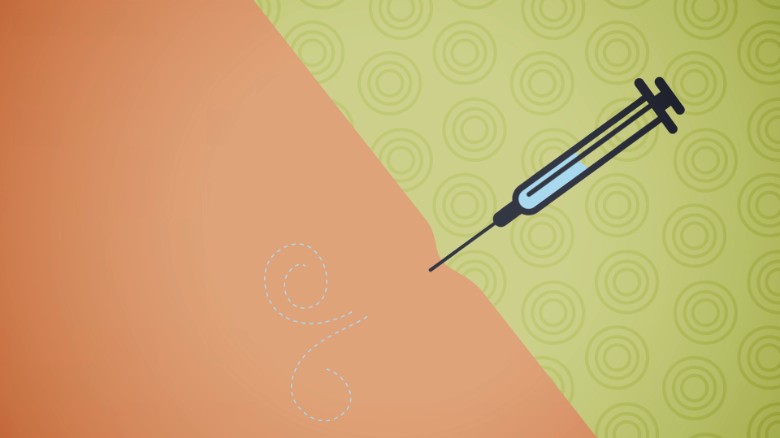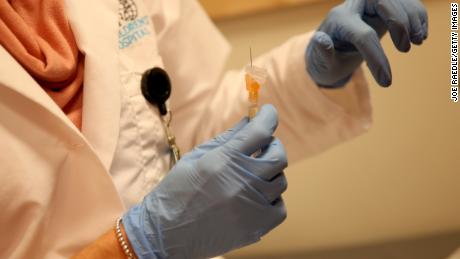Story highlights
- The CDC received more than 100 reports of measles between January 1 and July 14
- Most of the people who got measles had not been vaccinated
(CNN)More than 100 cases of measles have been diagnosed this year in 21 states and the District of Columbia, the US Centers for Disease Control and Prevention reported Wednesday.
Measles is a contagious virus that spreads through the air via coughing and sneezing. Symptoms such as high fever, rash all over the body, stuffy nose and reddened eyes typically disappear without treatment within two or three weeks. Yet one or two out of every 1,000 children who get measles will die from complications, according to the CDC.
From January 1 through July 14, the CDC recorded 107 measles patients living in Arkansas, California, Connecticut, Florida, Illinois, Indiana, Kansas, Louisiana, Maryland, Michigan, Missouri, Nevada, New Jersey, New York, North Carolina, Oklahoma, Oregon, Pennsylvania, Tennessee, Texas, Washington and the District of Columbia.
The CDC's 2018 midyear measles report appears high in comparison with recent years. In all of 2017, for example, 118 people from 15 states and DC had measles. In 2016, 86 people from 19 states had measles.
However, 2014 saw a record number of measles cases in the United States; 667 cases in 27 states were reported to the CDC. Of those, 338 were connected to a single large outbreak. The total number of cases that year is the highest number since measles elimination was declared in the US in 2000. Measles elimination is defined as the absence of continuous transmission for 12 months or more in a specific geographic area.
Most of the people who got measles had not been vaccinated, the CDC said.
The measles vaccine -- known as the MMR or measles, mumps and rubella vaccine -- is very effective. One dose is about 93% effective at preventing the contagious disease if you come into contact with the virus. Two doses are about 97% effective. It is recommended that children receive the vaccine in two doses: the first between the ages of 12 months and 15 months and the second between the ages of 4 and 6 years old.
The CDC believes that measles comes in from countries where Americans frequently travel, such as England, France, Germany, India, the Philippines and Vietnam. Worldwide, about 20 million people get measles each year, according to the agency.
In 2017, a total of 14,451 measles cases were reported across 30 nations in Europe -- more than three times the number reported in 2016, according to a surveillance update from the European Centre for Disease Prevention and Control, an agency of the European Union. There were 4,643 reported cases in 2016, according to that agency.
More spreading of measles also occurs in communities with pockets of unvaccinated people, according to the CDC.
Get CNN Health's weekly newsletter
Sign up here to get The Results Are In with Dr. Sanjay Gupta every Tuesday from the CNN Health team.
Unvaccinated infants are especially vulnerable to complications of measles, so they are best protected by herd immunity, the CDC advises. Herd immunity is achieved when at least 95% of the total population of a country gets the recommended two doses of vaccine.
Measles is one of the leading causes of death for children, according to the World Health Organization, which estimates that 450 die each day worldwide due to the illness.







